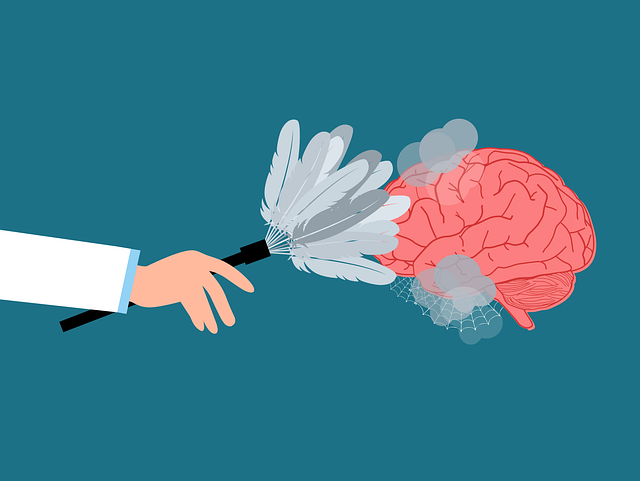Colorado Springs stands out for its comprehensive mental health services, featuring data-driven evaluations and diverse therapies. Local practitioners conduct specialized assessments to tailor treatment plans, focusing on individuals' unique psychological needs. Community programs promote positive thinking and empathy-building strategies for holistic personal growth. Through advanced data analysis, therapists personalize interventions like mood management and mindfulness meditation, leading to better outcomes and lasting mental well-being in Colorado Springs.
Mental health data analysis is transforming the landscape of therapy in Colorado Springs. This article explores the intricate process of understanding and interpreting mental health evaluations, offering valuable insights for therapists. We delve into effective strategies for analyzing data, showcasing how this approach enhances treatment planning and outcomes. By leveraging data-driven insights, therapists can tailor their practices to meet the unique needs of clients, revolutionizing mental health care in Colorado Springs and beyond.
- Understanding Mental Health Data Collection in Colorado Springs
- Analyzing and Interpreting Data for Effective Therapy Strategies
- The Impact of Data-Driven Insights on Treatment Outcomes
Understanding Mental Health Data Collection in Colorado Springs

Colorado Springs, a vibrant city known for its stunning landscapes and bustling atmosphere, has also made significant strides in mental health awareness and support. The region prioritizes data-driven approaches to understanding and addressing psychological well-being, utilizing various evaluation methods to gain insights into the unique needs of its residents. These evaluations encompass a broad spectrum, from traditional therapy sessions to innovative self-awareness exercises, ensuring comprehensive mental health care.
The city’s commitment to mental health is evident through its diverse range of services. Local practitioners offer specialized Colorado Springs mental health evaluations, tailored to identify specific issues and guide individuals toward suitable treatment plans. Additionally, various community programs focus on promoting positive thinking and empathy-building strategies as essential tools for personal growth and community well-being. Such initiatives reflect a holistic approach to mental health, recognizing the interconnectedness of individual and collective psychological wellness.
Analyzing and Interpreting Data for Effective Therapy Strategies

Analyzing and interpreting mental health data is a critical step in developing effective therapy strategies tailored to individual needs. In Colorado Springs, mental health evaluations play a pivotal role in understanding clients’ unique challenges. By delving into this data, therapists can uncover patterns and insights that guide treatment plans. This process involves meticulous analysis of various factors such as symptoms, triggers, coping mechanisms, and environmental influences, all of which contribute to forming a comprehensive picture of the client’s mental wellness.
Through structured assessments and ongoing monitoring, therapists can track progress, adjust interventions, and implement evidence-based practices. Moreover, self-care routine development for better mental health is an integral aspect enhanced by data-driven insights. Similarly, risk management planning for mental health professionals becomes more strategic when grounded in robust data analysis, ensuring the highest standards of care.
The Impact of Data-Driven Insights on Treatment Outcomes

In the realm of Colorado Springs mental health evaluations and therapy, data analysis has emerged as a powerful tool to enhance treatment outcomes. By leveraging insights derived from extensive datasets, therapists can gain a deeper understanding of individual patient needs, tailoring interventions accordingly. This precision approach enables more effective strategies for mood management, mindfulness meditation, and communication techniques – all integral components in the therapeutic journey.
Data-driven decisions allow for continuous improvement in therapy protocols. As treatment outcomes are tracked and analyzed over time, patterns emerge, highlighting what works best for different patient profiles. Such insights can revolutionize therapy practices, ensuring that each session is not just a transaction but a step towards lasting mental well-being. For instance, identifying effective communication strategies from data could lead to more engaging and successful therapeutic interactions, fostering a supportive environment crucial for positive outcomes in Colorado Springs mental health evaluations.
Mental health data analysis plays a pivotal role in enhancing therapy strategies in Colorado Springs. By understanding and interpreting collected data effectively, healthcare professionals can tailor treatments to better suit individual needs. This data-driven approach significantly impacts treatment outcomes, enabling more precise and successful interventions for those seeking mental health evaluations and therapy in Colorado Springs. Through continuous analysis and adaptation, the field of mental health care can evolve and provide more effective support.














